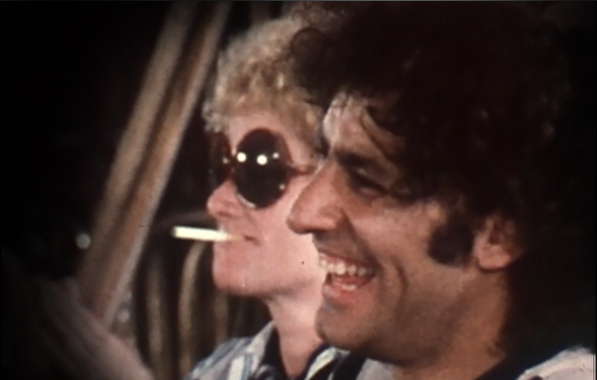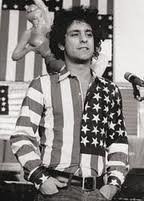
Brand X Abbie Hoffman
Abbie Hoffman was born on November 30, 1936 in Worcester, Massachusetts and graduated with a B.A. in Psychology in 1959 from Brandeis University where he studied under professors such as the noted psychologist Abraham Maslow, often considered the father of humanistic psychology and the Marxist theorist Herbert Marcuse, whom Hoffman said had a profound effect on his political outlook. Hoffman later graduated from the University of California, Berkeley with a Master's Degree in Psychology. He went on to become a political and social activist and co-founded the Youth International Party ("Yippies"). He was arrested and tried for conspiracy and inciting to riot as a result of his role in protests that led to violent confrontations with police during the 1968 Democratic National Convention, along with Jerry Rubin, David Dellinger, Tom Hayden, Rennie Davis, John Froines, Lee Weiner and Bobby Seale. The group was known collectively as the "Chicago Eight"; when Seale's prosecution was separated from the others, they became known as the Chicago Seven. While the defendants were initially convicted of intent to incite a riot, the verdicts were overturned on appeal, but Hoffman continued to be followed and harassed by various security agencies, was given refuge by certain unknown friends near the Canadian border where he died in 1989 at the age of 52 of a broken heart over the course of events in the country he loved.

|
Although he did not live long enough to make his ideas known to a wider audience, Hoffman has often been compared to Thomas Paine who took part in the American Revolution. As an author, pamphleteer, inventor, and journalist. Paine's widely read writings including "Common Sense", The Age of Reason, writings against Institutionalized Religion and, "Agrarian Justice," assured his place in the ranks of one of the founding fathers of United States of America. John Adams wrote of him, "Without the pen of the Author of Common Sense, the sword of General Washington would have been raised in vain.' Paine's ideas later exerted a profound, but covert influence on Abraham Lincoln and many others. The Inventor Thomas Edison, hailed him for his courage and sense of justice. Paine died alone on the morning of June 8, 1809 at 59 Grove Street in Greenwich Villiage, New York City. Only 6 people attended his funeral.